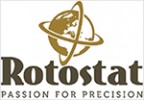Quality Supervisor
60+ Quality Supervisor Interview Questions and Answers

Asked in Harita Seating Systems

Q. How many methods of quality checking are you familiar with?
There are multiple methods of quality checking.
Statistical Process Control (SPC)
Six Sigma
Total Quality Management (TQM)
Failure Mode and Effects Analysis (FMEA)
Root Cause Analysis (RCA)
Pareto Analysis
Control Charts
Inspection and Testing
Quality Audits

Asked in Gujarat Craft Industries

Q. What is the role of temperature in PP and HD materials for plants?
Temperature plays a crucial role in determining the properties and performance of PP and HD materials in plants.
Temperature affects the crystallinity and mechanical properties of PP and HD materials.
Higher temperatures can lead to increased flexibility and impact resistance in PP materials.
Temperature variations can also impact the dimensional stability and chemical resistance of HD materials.
Extreme temperatures can cause degradation and loss of properties in both PP and HD ...read more
Quality Supervisor Interview Questions and Answers for Freshers

Asked in UltraTech Cement

Q. How many tests and coding languages are you familiar with in the RMC (Ready Mixed Concrete) field?
I am familiar with conducting various tests and using coding languages in the RMC field.
I am familiar with conducting tests such as slump test, air content test, and compressive strength test in the RMC field.
I have experience with coding languages like Python, SQL, and R for data analysis and quality control in the RMC industry.

Asked in Imperial Auto Industries

Q. Is it acceptable for a company to proceed with parts or work without quality approval?
Quality approval is essential for ensuring that products meet standards and customer expectations, impacting company reputation and success.
Quality assurance prevents defects; for example, in manufacturing, a faulty part can lead to product recalls and financial loss.
Without quality checks, companies risk producing substandard products, which can damage customer trust and brand reputation.
In industries like aerospace, quality approval is critical; a single defect can jeopardi...read more

Asked in Harita Fehrer

Q. What are the different types of control charts, and what are their names?
There are several types of control limit charts used in quality control.
Control limit charts are used to monitor and control processes in quality control.
Some common types of control limit charts include: X-bar and R chart, X-bar and S chart, Individual and Moving Range (I-MR) chart, and p-chart.
The X-bar and R chart is used to monitor the process mean and range.
The X-bar and S chart is used to monitor the process mean and standard deviation.
The I-MR chart is used for individ...read more

Asked in Amara Raja Power Systems

Q. What is Common Language Runtime (CLR)? What is Quality Assurance (QA)?
CLR is the runtime environment in .NET framework that manages execution of code and provides services like memory management.
CLR is a component of the .NET framework
It provides a runtime environment for executing managed code
CLR manages memory, security, and exception handling
It allows different languages to interoperate within the .NET framework
CLR compiles code into an intermediate language (IL) before execution
Quality Supervisor Jobs



Asked in Gsa Industries

Q. Type of 7QC tool, What are the 8 pillars of TPM
7QC tools include Pareto chart, cause and effect diagram, control charts, etc. 8 pillars of TPM are focused on improving equipment effectiveness and maintenance.
7QC tools: Pareto chart, cause and effect diagram, control charts, scatter diagrams, histograms, check sheets, flowcharts
8 pillars of TPM: Focused on improving equipment effectiveness and maintenance
Examples of TPM pillars: Autonomous maintenance, Planned maintenance, Quality maintenance, Training, Early equipment man...read more

Asked in UNO Minda

Q. Identify the organization or individuals responsible for quality control and the specific procedures used to ensure delivery of a quality product.
Quality control involves various roles and procedures to ensure products meet standards and specifications.
Quality Assurance Team: Responsible for developing quality standards and procedures.
Quality Control Inspectors: Conduct inspections and tests on products to ensure compliance.
Standard Operating Procedures (SOPs): Documented processes that outline quality control measures.
Statistical Process Control (SPC): Use of statistical methods to monitor and control production proce...read more
Share interview questions and help millions of jobseekers 🌟


Asked in Harita Seating Systems

Q. How many types of engines are there based on thermal principles?
Engines can be classified into various types based on their thermal processes, including internal combustion and external combustion engines.
Internal Combustion Engine (ICE) - Examples: gasoline and diesel engines.
External Combustion Engine - Examples: steam engines and Stirling engines.
Two-Stroke Engine - Common in small engines like chainsaws.
Four-Stroke Engine - Widely used in cars and motorcycles.
Rotary Engine - Example: Wankel engine used in Mazda RX series.
Asked in Gsa Industries

Q. What is quality, TPM,5s, kizine, rejectson
Quality is meeting customer requirements, TPM is Total Productive Maintenance, 5S is workplace organization, Kaizen is continuous improvement, rejects are products not meeting quality standards.
Quality is ensuring products or services meet customer requirements and standards.
TPM (Total Productive Maintenance) is a proactive approach to maintenance to maximize equipment effectiveness.
5S is a methodology for workplace organization focusing on Sort, Set in order, Shine, Standard...read more

Asked in Gujarat Craft Industries

Q. What is the manufacturing process for tape plants?
Tape plant manufacturing is a process of producing adhesive tapes using various materials and techniques.
The process starts with preparing the adhesive mixture, which is then coated onto a backing material such as paper, film, or cloth.
The coated material is then dried and cured to ensure proper adhesion and strength of the tape.
After curing, the tape is slit into various widths and lengths before being wound onto rolls for packaging and distribution.
Quality control measures ...read more

Asked in Gujarat Craft Industries

Q. What is the role of UV materials in fabric?
UV materials in fabric play a crucial role in providing protection against harmful UV rays from the sun.
UV materials in fabric help to block or absorb harmful UV rays from the sun
They can prevent sunburn, skin damage, and reduce the risk of skin cancer
UV protective clothing is often treated with special coatings or dyes to enhance its UV-blocking capabilities
Asked in Ganga Metco

Q. How to use measurement devices & details about them.
Measurement devices are used to accurately quantify physical properties. They include tools like calipers, micrometers, and gauges.
Understand the purpose of the measurement and select the appropriate device
Ensure the device is calibrated regularly to maintain accuracy
Follow manufacturer instructions for proper use and maintenance
Record measurements accurately and consistently for quality control purposes

Q. What is the difference between calibration and verification?
Calibration involves adjusting an instrument to ensure accuracy, while verification involves confirming that the instrument is within acceptable limits.
Calibration is the process of adjusting an instrument to ensure it is accurate and reliable.
Verification is the process of confirming that the instrument is within acceptable limits and functioning correctly.
Calibration requires making adjustments to the instrument based on known standards or references.
Verification involves c...read more

Asked in Harita Fehrer

Q. How many engines should run in the process?
The number of engines to run in the process depends on the specific requirements and capacity of the system.
The number of engines may vary based on factors such as production volume, efficiency, and quality standards.
It is important to consider the workload and capacity of each engine to ensure optimal performance.
Regular monitoring and evaluation of the process can help determine if the current number of engines is sufficient or needs adjustment.
For example, if the process r...read more
Asked in South West Mining

Q. What do you know about the aggregate types test?
The aggregate types test is used to determine the physical properties of different types of aggregates used in construction.
The test helps in evaluating the quality of aggregates for use in concrete mixtures.
It involves determining the shape, size, and specific gravity of the aggregates.
The test also assesses the resistance of aggregates to degradation and the presence of impurities.
Examples of aggregate types include gravel, sand, crushed stone, and slag.
Asked in Dhananjay Metal Craft

Q. What are the fundamental concepts of quality?
Quality encompasses principles ensuring products/services meet standards and satisfy customer needs.
Customer Focus: Understanding and meeting customer needs, e.g., conducting surveys to gather feedback.
Continuous Improvement: Ongoing efforts to enhance products/services, e.g., implementing Lean methodologies.
Process Approach: Managing activities as processes to achieve desired results, e.g., using Six Sigma to reduce defects.
Leadership: Establishing a clear vision and directi...read more

Asked in UltraTech Cement

Q. What do you know about Ready-Mix Concrete (RMC)?
Ready-Mix Concrete (RMC) is a type of concrete that is manufactured in a batching plant according to a set recipe and then delivered to a construction site by truck-mounted transit mixers.
RMC is a convenient and efficient way to supply concrete for construction projects.
It ensures consistent quality and reduces wastage of materials.
RMC can be customized for specific project requirements, such as strength and durability.
It is commonly used in large construction projects like b...read more

Asked in Gujarat Craft Industries

Q. How can the strength of the tape be increased?
Increasing strength in tape can be achieved through various methods such as using higher quality materials, improving the adhesive formula, and enhancing the manufacturing process.
Use higher quality materials to make the tape more durable and resistant to tearing.
Improve the adhesive formula to ensure better adhesion and bonding strength.
Enhance the manufacturing process to create a more uniform and consistent tape product.
Consider adding reinforcement fibers or layers to inc...read more

Asked in Talbros Engineering

Q. write a symble of geometry for flatness and roughness
The symbol for flatness is a straight line and for roughness is a series of peaks and valleys.
Flatness is represented by a straight line with no curves or bumps.
Roughness is represented by a series of peaks and valleys that indicate the surface is not smooth.
The symbol for flatness is often used in engineering drawings to indicate a surface that must be perfectly flat.
The symbol for roughness is often used in manufacturing to indicate a surface that requires additional proces...read more
Asked in Gsa Industries

Q. What are the 5 principles of TPM?
TPM (Total Productive Maintenance) is based on 5 principles: 1. Autonomous maintenance 2. Planned maintenance 3. Focused improvement 4. Early equipment management 5. Quality maintenance.
Autonomous maintenance involves operators taking responsibility for routine maintenance tasks.
Planned maintenance focuses on scheduling regular maintenance to prevent breakdowns.
Focused improvement aims to continuously improve processes and eliminate waste.
Early equipment management involves i...read more

Asked in Alok Industries

Q. How many departments in garments industry
The garments industry typically consists of several key departments, each playing a vital role in production and quality control.
Design Department: Responsible for creating garment designs and patterns.
Production Department: Oversees the manufacturing process and ensures timely delivery.
Quality Control Department: Inspects products for defects and ensures compliance with standards.
Merchandising Department: Manages product selection and pricing strategies.
Marketing Department:...read more

Asked in Gujarat Craft Industries

Q. How can we decrease the problem of high elongation?
To decrease high elongation problem, focus on adjusting process parameters, improving material quality, and implementing proper training and supervision.
Optimize process parameters such as temperature, speed, and tension to reduce elongation.
Use higher quality materials with better tensile strength to prevent excessive elongation.
Provide training to operators on proper handling techniques to minimize elongation issues.
Implement regular supervision and quality checks to identi...read more

Asked in Harita Seating Systems

Q. How many types of quality inspection are there?
There are several types of quality inspections, including incoming, in-process, final, and random inspections.
Incoming inspection: Checking the quality of raw materials or components before they are used in production.
In-process inspection: Monitoring the quality of products during the manufacturing process.
Final inspection: Assessing the quality of finished products before they are shipped to customers.
Random inspection: Conducting random checks on products to ensure consist...read more

Asked in Harita Fehrer

Q. WHERE NAME OF SPEED MESUREMENT METERS
Speed measurement meters are devices used to measure the speed of an object or vehicle.
Speed radar guns are commonly used by law enforcement to measure the speed of vehicles.
Laser speed guns use laser technology to measure the speed of an object.
Doppler radar systems are used to measure the speed of moving objects by analyzing the change in frequency of the reflected waves.
GPS devices can also be used to measure the speed of a moving vehicle by calculating the change in posit...read more
Asked in Gsa Industries

Q. What does quality mean in a company?
Quality in a company refers to meeting or exceeding customer expectations through consistent delivery of products or services that are free from defects.
Quality involves meeting customer requirements and expectations.
It includes consistency in delivering products or services that are free from defects.
Quality also involves continuous improvement and adherence to standards and regulations.
Examples of quality in a company include high customer satisfaction, low defect rates, an...read more

Asked in Rotostat Services

Q. Talk about WPS, ASME codes, welding consumables, material codes, Hydrotest,etc
WPS, ASME codes, welding consumables, material codes, and Hydrotest are essential components in ensuring quality and safety in welding processes.
WPS stands for Welding Procedure Specification and outlines the necessary parameters for a specific welding process.
ASME codes are standards set by the American Society of Mechanical Engineers to ensure quality and safety in engineering practices.
Welding consumables refer to materials used in welding processes, such as electrodes, fi...read more

Asked in Harita Fehrer

Q. How does a transducer work?
Transducers are devices that convert one form of energy into another.
Transducers are used in various industries such as automotive, aerospace, and healthcare.
They can be used to measure physical quantities such as temperature, pressure, and flow.
Transducers can also be used in medical imaging devices like ultrasound machines.
Examples of transducers include thermocouples, pressure sensors, and microphones.

Asked in Imperial Auto Industries

Q. What is SPC and how do you perform it?
SPC stands for Statistical Process Control, a method used to monitor and control processes to ensure they are operating efficiently.
Collect data from the process being monitored
Calculate control limits based on the data
Plot the data on a control chart to identify any trends or patterns
Take corrective action if data points fall outside the control limits
Repeat the process regularly to maintain control
Asked in Gsa Industries

Q. What are the four aims of TPM?
The 4 aims of TPM are maximizing equipment effectiveness, improving overall equipment efficiency, reducing breakdowns, and reducing defects.
Maximizing equipment effectiveness by ensuring equipment is available and performing at its best
Improving overall equipment efficiency by reducing downtime and improving productivity
Reducing breakdowns by implementing preventive maintenance strategies
Reducing defects by focusing on quality control and continuous improvement
Interview Questions of Similar Designations
Interview Experiences of Popular Companies






Calculate your in-hand salary
Confused about how your in-hand salary is calculated? Enter your annual salary (CTC) and get your in-hand salary


Reviews
Interviews
Salaries
Users










